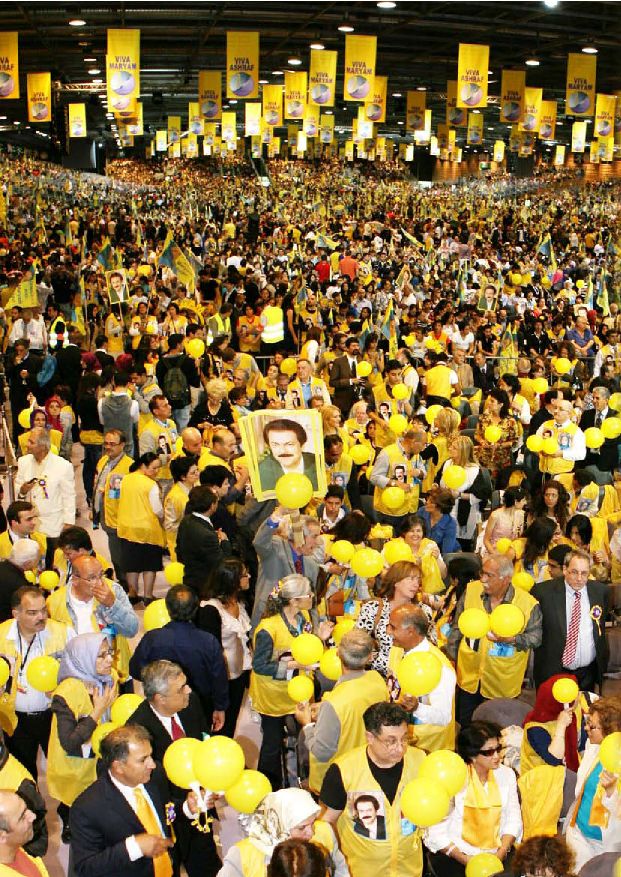StopFundamentalism.com
According to the Supreme Leader of Iran, Ayatollah Khamenei, the Iranian people don’t want democracy of the Western kind. They want Sharia law.
I know who would agree with him: the taxi driver who, a few weeks ago, drove me from the Iranian resistance demonstration outside the State Department in Washington D. C. “Iran is a free country,” he said. “The mullahs are good. I’ve lived in Iran so I know.” When was that, I asked. “In the Shah’s time.”
When the Shah died the Iranian people may have had reason to hope the mullahs would free them, but they were quickly disappointed, and there has been no improvement since. To give just one example, there were at least 62 executions in Iran during September. A free country?
One of the obstacles to making it really free is that the main opposition group, the People’s Mojahedin of Iran, also known as the Mojahedine-e-Khalq, is still on the US list of terrorist organisations, three years after it was removed from the UK list, two and a half years after it was removed from the EU one, and fourteen months after the Court of Appeal in the District of Columbia ruled that there was no justification for keeping it there.
This makes it harder to bring about regime change in Iran, which in turn makes the whole of the Middle East less likely to be stable in the near future.
The United Nations High Commissioner for Human Rights has granted the status of asylum seekers to the 3,400 Iranian refugees now living in Camp Ashraf, in Iraq. Now it is time for the Secretary General to take action.
A UN monitoring force needs to be stationed at the camp, full time. As long as these innocent people, of whom 36 were murdered and 345 wounded last April, are classified as terrorists, the High Commissioner has admitted that it is hard to find them homes in third party countries, where their safety can be guaranteed.
The Iraqis, whose forces were responsible for the April attack, have used the terrorist label to justify it. Meanwhile, at a rally outside the UN Headquarters in New York on 22 September, the former Secretary for Homeland Security, Tom Ridge, declared that the PMOI/MEK surrendered all weapons and pose no threat whatever to the security of the US or anyone else.
The President-elect of the Iranian Resistance, Mrs Maryam Rajavi, is prevented as a “terrorist” from entering the United States, while President Ahmadinejad, a former torturer at Evin Prison, who claims never to hurt a fly but is happy to order six-year-old children to be hanged, speaks at the United Nations Headquarters. As Mrs Rajavi told the New York rally by video link, “It is no place for a murderer.”
Camp Ashraf is due to be closed at the end of this year; it could be another Srebrenica if Mek is not delisted. Time is running out.
Carolyn Beckingham, a British writer and translator of a book called “Eye to Eye of a Monster”, and a human rights activist
